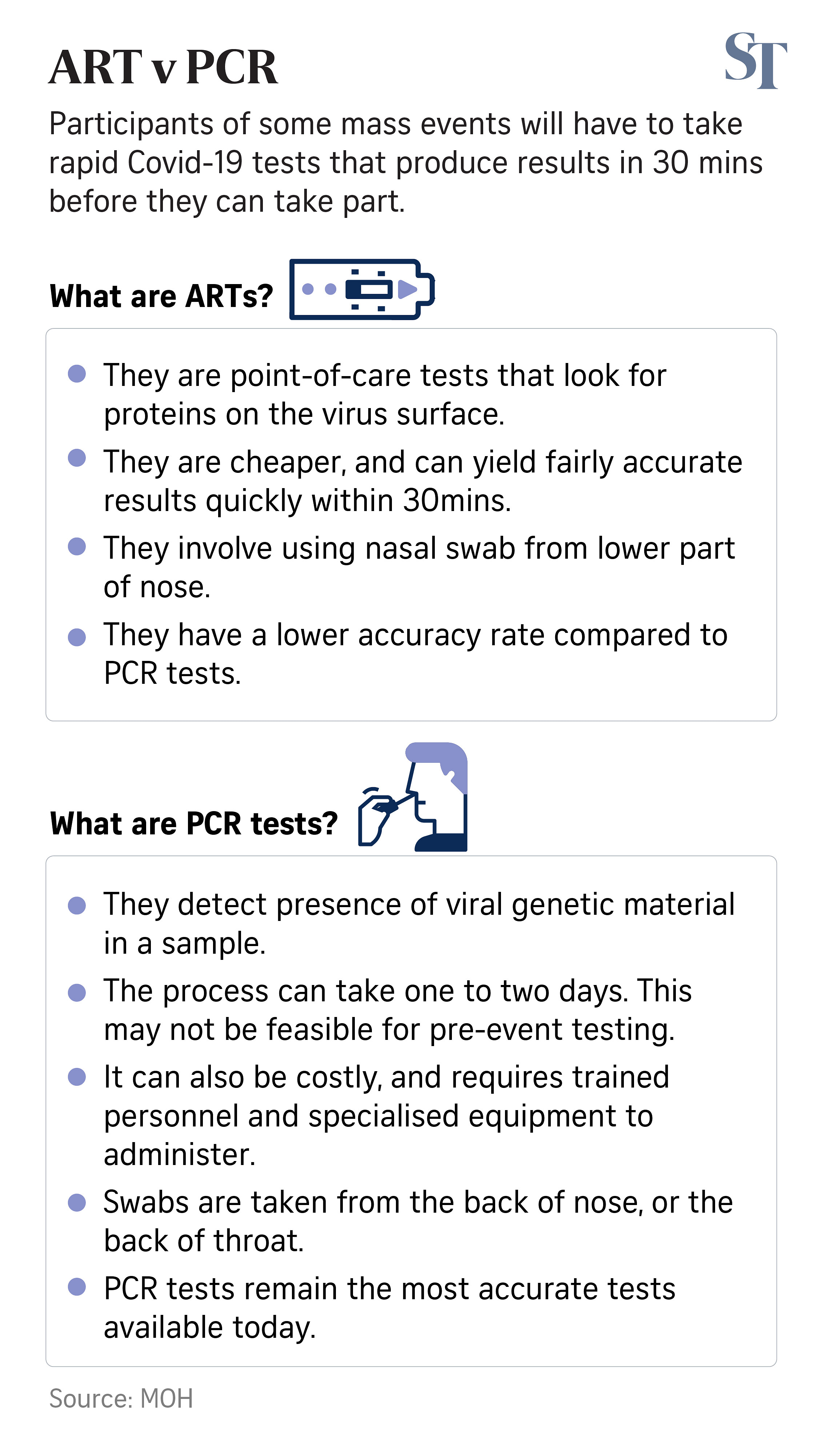SINGAPORE - Citizens, permanent residents and long-term pass holders who travelled out of Singapore on or after March 27 will now be able to access government subsidies and insurance coverage for treatment if they are found to be infected with the Covid-19 virus after their return.
This is in line with the move to progressively reopen the country's borders, the Ministry of Health said on Tuesday (Oct 20).
It previously said that those who leave Singapore from March 27 would be responsible for their own bills and cannot access government subsidies or insurance coverage if they get Covid-19 symptoms within 14 days of their return.
Exceptions are made for those who travel on permitted travel arrangements such as reciprocal green lanes, and for students who travel overseas for full-time studies.
MOH also said on Tuesday that the Government will continue to pay any Covid-19 medical bill for Singaporeans, PRs and long-term pass holders who left the country before March 27.
It added that it will have to gradually reopen the borders further.
"Unlike larger countries which can keep their borders closed, our livelihoods and economic survival depend heavily on Singapore being open to the world and being a key international and travel hub," said the ministry.
"It is therefore not possible for Singapore to keep our borders closed indefinitely. We will have to gradually allow more travel to resume in a safe manner."
While travellers from some countries, such as China and New Zealand, can now enter Singapore without spending two weeks in isolation under special arrangements, those who are from countries deemed to have higher risks of Covid-19 infection will still have to serve 14 days in quarantine.
MOH said it will look into more frequent testing and other safeguards to enable more travellers to enter without having to be quarantined.
Education Minister Lawrence Wong, who co-chairs the task force fighting the Covid-19 outbreak, said in a briefing on Tuesday that the compulsory isolation period is the "main deterrent to travel today".
Mr Wong said: "We have been looking at ways in which we can allow for people to come in without having to serve this 14-day self-isolation period.
"But in return, to ensure that they are safe, we deploy more frequent testing. So, an example of such a use case may be a PCR (polymerase chain reaction) test when you arrive, and later on, the more frequent testing may be done through an antigen test."
He added that the PCR test will still be the test required on incoming travellers for the meantime, in response to a question about whether the authorities will switch to the use of rapid antigen testing to detect Covid-19 infections in incoming travellers.

MOH said on Tuesday that it will be requiring participants in some mass events to take an antigen rapid test and get a negative result before admission. Such tests can deliver results within 30 minutes, but are less accurate than PCR tests.
Health Minister Gan Kim Yong said any decision on the use of antigen tests for travellers will depend on the results of the pilot tests for mass events.
On the issue of whether Singapore will reconsider its travel arrangements with Malaysia in light of the rising number of Covid-19 cases there, Mr Wong said Singapore monitors not just the case numbers in other countries but also other data such as prevalence ofCovid-19 infections among travellers from such countries.
"The assurance to everyone is that our travel arrangements are not a free for all sort of arrangement. People do come in, but there is a system of stay-home notices, as well as testing, in place to ensure that they are safe before they can come in to the community," he added.












